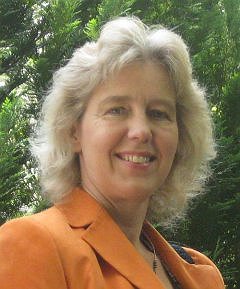"Pressure Makes Diamonds": Accelerating Modern Approaches in Global Software Engineering
At Siemens Healthineers we have a broad range of products, many of which are software-intensive systems. These range from medical devices (e.g. computer tomography, magnetic resonance, or ultrasound machines) to AI-powered, cloud-based decision support systems to hand-held point-of-care monitoring devices (e.g. for diabetes or blood gas). We have about 4000 software engineers world-wide with ca. 50% of them are based in India and developing software for practically all of our business areas.
We apply many approaches of modern software engineering to our systems. We have extensive experience with agile development and are making strong inroads towards continuous delivery and deployment. Software architecture plays a very important role, especially as architecture is key to achieving the necessary quality attributes needed by products in our domain. Increased automation, to achieve increased productivity, repeatability, and transparency, is also well-established and growing. In our view, these are important cornerstones of modern software engineering and have a strong impact on the set of methods, processes, and tools that we apply in our global software engineering teams. These are also major themes in our company-wide “Software Curriculum” qualification program that helps ensure a common understanding and culture across the company (across business units, countries, roles).
We have particular challenges in our domain – due to our application domain many of our products are safety-critical and require regulatory approval. The focus on systems is important as it is not realistic to focus on “software only” – we must consider the software always in the context of the software-intensive systems.
Our company is impacted by the Covid-pandemic in multiple ways. One one hand, we do have a number of products that help healthcare professionals detect it or provide treatment. And our company, as practically all companies, are doing much more work-from-home. For example, all of our in-person software trainings have now moved, at least temporarily, to online trainings. So now almost everyone experiences personally some of the challenges that the multi-site global software development teams experience (online meetings, remote access etc.). The Covid-pandemic significantly increased the pressure for more digitalization and accelerated our focus on the topics agility, architecture, and automation.
This industry talk focuses on how these three topics are key to modern software engineering in a global development team – and how the “pressure” from the Covid-pandemic accelerated the impact of these topics, based on concrete examples in the area of continuous delivery.
This will be shown in the concrete area of “continuous delivery” which is a way-of-working that strives to keep the system in a releasable state throughout its development. One shifts from a project-based approach with large major releases to a series of many smaller releases i.e. a continuous value stream of small features (this makes it much easier to keep global teams well-synchronized and to do so based on the actual state of the project). One needs an aligned architecture and organizational culture to be able to work in this manner. Similarly, a high degree of automation is beneficial as this enables low friction, fast feedback and full transparency throughout the development and deployment.
Head of the “Software Initiative” at Siemens Healthineers.
Wed 19 MayDisplayed time zone: Amsterdam, Berlin, Bern, Rome, Stockholm, Vienna change
17:00 - 17:52 | 4A: Global Software Engineering PracticesJournal-First / Experience Reports & Industry Talks / Research Papers at ICSSP/ICGSE Room Chair(s): Stanley Sutton Independent Researcher | ||
17:00 13mIndustry talk | The Distance Made Us Work Closer Together, Now What? Experience Reports & Industry Talks Media Attached | ||
17:13 13mIndustry talk | "Pressure Makes Diamonds": Accelerating Modern Approaches in Global Software Engineering Experience Reports & Industry Talks Media Attached | ||
17:26 13mTalk | Understanding Coordination in Global Software Engineering: A Mixed-Methods Study on the Use of Meetings and Slack Journal-First Link to publication DOI Media Attached | ||
17:39 13mTalk | An Empirical Study on the Teams Structures in Social Coding Using GitHub Projects Journal-First A: Mariam El Mezouar Royal Military College, A: Feng Zhang Queen's University, Kingston, Ontario, A: Ying Zou Queen's University, Kingston, Ontario Link to publication DOI Media Attached | ||
Go directly to this room on Clowdr
